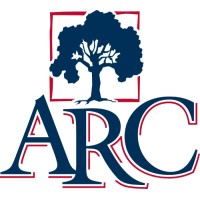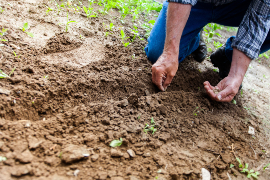Environmental Conservation Technician (Conservation/Restoration) Certificate (Certificate)
Universidad American River
Sacramento, CA
This certificate advances the understanding of ecological systems and their interrelationships, including those with human society. It focuses on ecology, field methods and study design, and conservation and management of ecosystems and natural resources, with an emphasis on environmental restoration theory and practice and global and emerging environmental and conservation issues. Topics include both the causes of ecological degradation and biodiversity loss, as well as the science of development, management, monitoring, and sustainability of restored environments. Conservation priorities and emerging environmental concerns are investigated, such as climate change, energy production, socioeconomic systems, human population, disease dynamics, species extinctions, invasive species, stresses on water resources and food-producing systems,and over-exploitation of natural resources. Emphasis is placed on development of strategies for the establishment of protected areas, monitoring and adaptive management, and conservation outside of protected areas, as well as an understanding of biodiversity at genetic, species, and community/ecosystem levels.
This program prepares students for entry-level conservation/restoration aide/technician positions in a variety of industries and settings, including private firms, nonprofit organizations, educational institutions, and government agencies at the local, state, and federal levels. Students receive not only rigorous instruction in the theory and application of environmental sciences but also unique hands-on training in conservation and restoration. Potential job opportunities include work in the areas of survey/monitoring of threatened and endangered species and habitats, planning and execution of restoration projects, climate change adaptation for human communities, conservation advocacy, and other fields.
Student Learning Outcomes
✔ apply the scientific method and critical analysis to environmental investigations
✔ evaluate natural resource systems, including their past and present use and management and future sustainability
✔ analyze social, ethical, and biological implications of environmental management alternatives
✔ identify ecological phenomena in one's everyday experiences and apply ecological principles to understand local, national and global environmental issues
✔ assess the relationships of plants and animals to their environment and to each other
✔ measure and analyze the physical environment of plant and animal populations
✔ evaluate basic land survey, water quality, vegetation, and vertebrate wildlife data
✔ investigate restoration ecology theory and assess and apply restoration practices to real-world environmental restoration problems
✔ identify global and emerging environmental issues and evaluate potential impacts and possible solutions
✔ examine biodiversity in terms of biological structure, composition, and function at the genetic, species, ecosystem and landscape levels
✔ apply fundamental biological and ecological concepts to the examination of critical biological conservation issues






